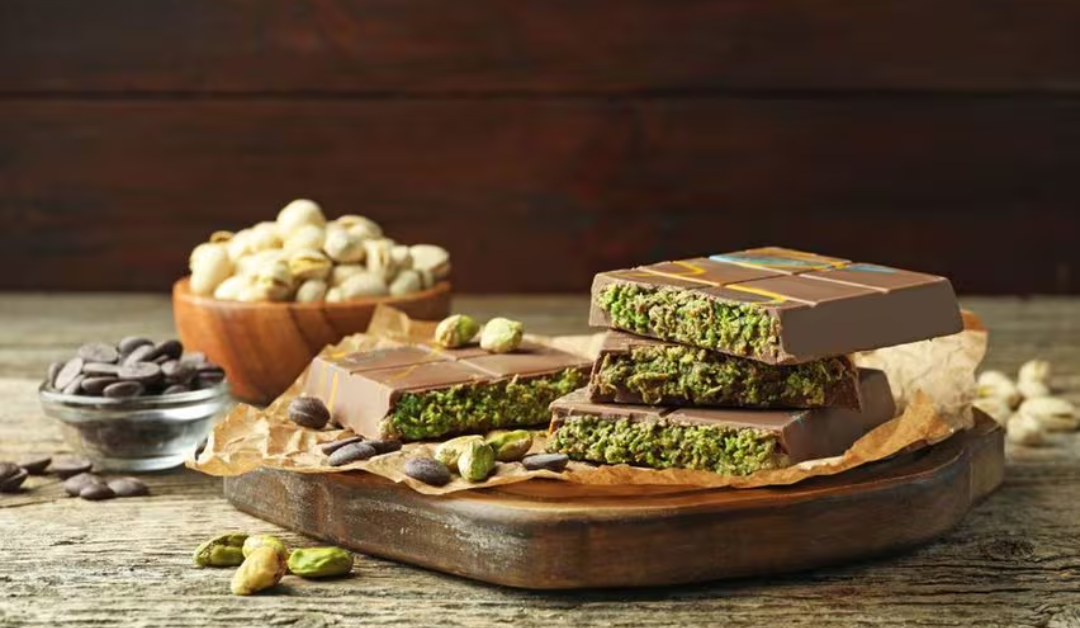How a Viral Treat Turned Into a Global Disruption
What started as a luxurious sweet treat from Dubai has rapidly snowballed into an international supply chain headache. The now-famous “Dubai chocolate” — a rich bar layered with crispy knafeh pastry, creamy pistachio filling, and tahini spread — took the internet by storm after going viral on social media platforms, amassing over 100 million views and counting.
Initially created by a boutique chocolatier in Dubai, the dessert’s sudden explosion in popularity sparked a global craving. This unforeseen demand has led to a widespread shortage of pistachios, a key ingredient, sending shockwaves through the confectionery world and nut industry.
Pistachio Prices Climb Amid Surging Demand
As the dessert’s fame grew, so did the demand for premium pistachios. Prices have surged dramatically — in some regions, by over 30% in less than a year. Exporting countries have struggled to keep up, with harvests falling short and storage reserves being depleted faster than anticipated.
Global pistachio markets are feeling the pressure. In countries known for high-quality pistachio production, such as the United States, Iran, and Turkey, demand from dessert manufacturers and retailers has strained the already tight supply. Some governments are now considering importing pistachios from less traditional sources to ease the crunch.
Global Brands and Local Artisans Join the Trend
The dessert’s viral success has inspired chocolate makers and pastry chefs around the world to create their own interpretations of the Dubai chocolate bar. From global chocolate brands to small independent bakers, everyone is trying to capture the magic of this Middle Eastern-inspired confection.
In cities across Europe and North America, artisan chocolatiers are reporting record-breaking sales. Some have had to double staff and expand production facilities just to keep up. New product launches featuring pistachios are flooding the market — from truffles to spreads — all aiming to ride the wave of pistachio-mania.
Rise in Counterfeits and Consumer Scams
With demand outpacing supply, a darker side of the trend has emerged: the rise of counterfeit products. Imitation Dubai chocolates are being sold online, often through deceptive websites mimicking legitimate brands. Consumers are being warned to exercise caution, as many of these fakes use low-quality ingredients and offer none of the taste or luxury of the original.
Cybersecurity experts are urging shoppers to verify sources before making purchases, especially from unfamiliar sites or social media ads that promise quick delivery and steep discounts.
A Delicious Trend with Unexpected Consequences
The Dubai chocolate phenomenon is a striking example of how a viral moment can ripple across industries, economies, and continents. While it’s brought joy to sweet-toothed fans and boosted local economies, it has also exposed vulnerabilities in agricultural supply chains and opened doors to exploitation through counterfeits.
What started as a simple dessert now stands as a symbol of our hyper-connected world — where one viral video can reshape markets and shake up global logistics in the blink of an eye.



